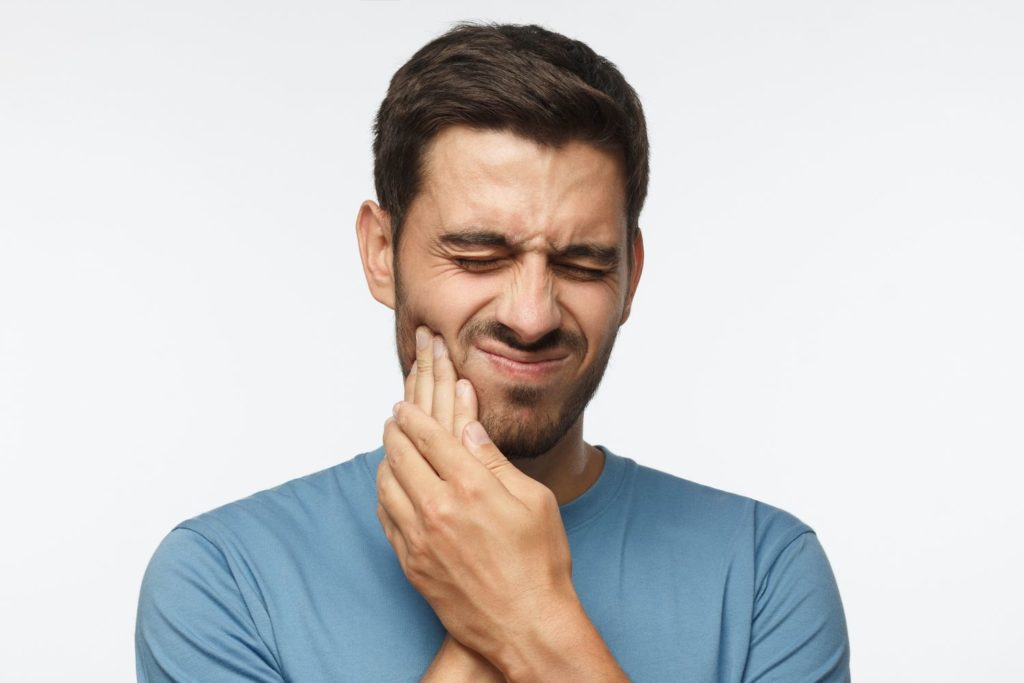Many people have a habit of grinding or clenching their teeth now and then. Though it may seem annoying, it will also pose a serious threat to your dental health if it becomes chronic.
The grating of the top teeth against the bottom ones will generate pressure that could create a number of problems in your smile. Teeth grinding, also known as bruxism, can occur for a number of reasons, and our dentist can fix this issue depending on its root cause. Read on to find three of the many reasons that you should seek treatment from our dentist for chronic bruxism.

Why Treat Bruxism?
Protect Your Dental Structure
Your teeth are strong and able to withstand constant biting and chewing without issue usually. But high pressure from bruxism could cause damage to your dental structure in multiple ways.
For instance, you could crack, chip, or fracture your tooth in a dental injury if you continue to grind and clench your teeth. This could disrupt the appearance of your smile, but it will also create a vulnerable spot on the tooth that could lead to further dental harm. If you notice tooth breakage, even if you do not feel pain from the injury, you should tell our dentist right away to seek urgent dental restoration.
Teeth grinding can also lead to more gradual damage to your dental structure. Over time, bruxism can wear down the enamel, the outer shell of the tooth. Enamel will not regrow once eroded, and the sensitive interior of your tooth will be left exposed.
You might feel tooth sensitivity pain as well as have a higher risk for cavities and other dental dangers. Stopping bruxism can preserve the natural structure of your teeth, keeping them looking and feeling their best.
Prevent Jaw Pain
The pressure from chronic bruxism will extend beyond your teeth. This behavior can create tension within the jaw that will make it feel sore and inhibit its function. You may start to notice a clicking sound when you move your jaw.
This problem will worsen over time into temporomandibular joint disorders, also known as TMJ. You might start to feel pain that reaches your head and ears as well as your jaw.
The issue will grow more severe and will require intervention from our dentist to resolve. So prevent its formation by stopping behaviors that can lead to it, like teeth clenching and grinding.
Get the Most Out of Your Dental Work
Chronic bruxism can also harm existing dental work as the pressure and grating continue. Dentists use materials when restoring and enhancing your teeth that will endure the usual wear and tear of your mouth.
But bruxism generates abnormal pressure that can wear down dental fillings, crowns, porcelain veneers, and other dental fixtures within the mouth. This could make the dental work become loose, broken, or completely dislodged.
Damaged dental work will leave your teeth at risk of further harm, so you will need to see our dentist for repairs. Save time and money by stopping bruxism before you require this extra dental work.
